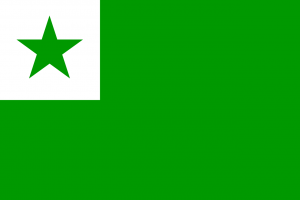Language/Esperanto/Vocabulary/Days-of-the-Week
Hi Esperanto learners! 😊
In this lesson, we will focus on learning the days of the week in Esperanto. Knowing the days of the week is essential for daily conversations and scheduling. With the help of cultural information and interesting facts, let's dive into this topic! Don't forget to use Find native speakers and ask them any questions if you need additional help.
Saluton, kaj bonvenon al nia leciono pri Esperanto Vocabulary → Days of the Week! En ĉi tiu leciono, ni lernos la nomojn de la tagoj de la semajno en Esperanto. Kiam vi finos ĉi tiun lecionon, vi povos paroli pri viaj planoj, aranĝi renkontiĝojn, kaj diskuti la pasintajn kaj venontajn eventojn en la internacia lingvo de Esperanto. 😊
Sed ne haltu ĉe la tagoj de la semajno! Ni havas multajn aliajn lecionojn por pliigi vian Esperanto-vortprovizon. Ekzemple, vi povas lerni pri Esperanto Vocabulary - Animal, Esperanto Vocabulary - Vehicles, kaj Esperanto Vocabulary - Family. Ĉi tiuj lecionoj helpas vin iĝi pli flua kaj komforta parolanto de Esperanto. 🌍
Bonan lernadon, kaj ĝuu vian vojaĝon en la mondo de Esperanto!
Days of the week
Here are the words for the days of the week in Esperanto:
| Esperanto | Pronunciation | English |
|---|---|---|
| Lundo | /ˈlundo/ | Monday |
| Mardo | /ˈmardo/ | Tuesday |
| Merkredo | /merˈkredo/ | Wednesday |
| Ĵaŭdo | /ˈʒaʊdo/ | Thursday |
| Vendredo | /venˈdredo/ | Friday |
| Sabato | /saˈbato/ | Saturday |
| Dimanĉo | /diˈmant͡ʃo/ | Sunday |
By learning just seven words, you will be able to discuss when to have meetings, recreational activities, and much more.
Cultural Information
Esperanto speakers come from a variety of cultures, and the language itself has its own unique culture. During the early 20th century, Esperanto was used as a universal language that brought together people of different languages and cultures.
Today, Esperanto continues to be an inclusive and welcoming language, that celebrates cultural diversity. You can learn more about the Esperanto language and culture by using the Polyglot Club website.
Interesting Facts
- The word "Dimanĉo" comes from the Latin word "Dominica," which means "Lord's day."
- Esperanto enthusiasts celebrate Zamenhof's Birthday every year on December 15th. Zamenhof is the inventor of the Esperanto language.
Dialogue
- Person 1: Kiam ni renkontos vin? (When will we meet you?)
- Person 2: Kion vi pensas pri Lundo aŭ Mardo? (What do you think of Monday or Tuesday?)
- Person 1: Mi preferas Merkredon aŭ Ĵaŭdon. (I prefer Wednesday or Thursday.)
- Person 2: Bone, ni kunvenos je la 6a de Merkredo. (Good, we will meet at 6 PM on Wednesday.)
Recap
In this lesson, we learned the words for the days of the week in Esperanto. We also learned about the cultural and interesting facts about Esperanto. To improve your Esperanto Vocabulary, you can also use the Polyglot Club website. Don't forget to find native speakers and ask them any questions!
➡ If you have any questions, please ask them in the comments section below.
➡ Feel free to edit this wiki page if you think it can be improved. 😎


